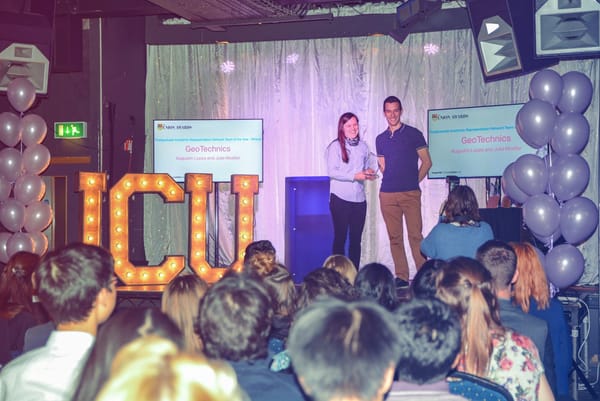Imperial hosts Prime Minister Theresa May
During the visit, the Prime Minister announced plans to end UK carbon emissions by 2050

Prime Minister Theresa May paid a visit to Imperial College London on Wednesday 12th June. Senior Teaching Fellow Dr. Colin Hale played host as the Prime Minister toured the department’s Carbon Capture Pilot Plant.
The Prime Minister, who was accompanied by Energy and Clean Growth Minister Claire Perry MP, was also welcomed by the Provost, Ian Walmsley, and former co-director of the Grantham Institute, Professor Joanna Haigh.
The Prime Minister’s announcement that the UK plans to end carbon emissions by 2050 will see the country become the first G7 nation to legislate for net zero emissions. This news was welcomed by Professor Haigh, who also marked her retirement after 35 years at Imperial on Wednesday and, just weeks ago, led a group of eminent climate change researchers in urging the Prime Minister to pass the target into UK law.
Dr. Hale introduced the politicians to a team of third year undergraduate Chemical Engineering students, Alexa Vasey, Maika Ueda and Ferdinand Agu, who explained the work they do on the Carbon Capture Pilot Plant and spoke about Imperial’s deep influence on industry and policymakers. Following this, the Energy Minister and the Prime Minister both expressed their admiration of Imperial’s Carbon Capture Pilot Plant and the College’s wider work in carbon capture and storage, climate change and energy research. Claire Perry MP commented, "it's an amazing facility here... to me, this is the Industrial Strategy in action".
Speaking to Felix, Ferdinand commented: “The UK’s commitment to net zero carbon emissions by 2050 is indeed exemplary and the sort of radical decision making required to curb global warming. Carbon capture and storage is an imperative part of this and the PM was able to get a feel for the techniques, scalability and problems facing the technology. She was full of questions and seemed pleased with the answers she got, as such I’d consider the visit a success.”
The PM and minister also met PhD students, Janet Skitt and Parth Shah, who demonstrated their work. Janet’s work, which focuses on generating liquid fuels from second generation carbon neutral fuels that are compatible with existing vehicles, could play a pivotal role in decarbonizing transport. Parth’s work revolves around the continuous synthesis of metal oxide nanoparticles, while developing scalable, energy efficient processes that minimise waste water.
Prime Minister Theresa May concluded her visit with the following: “As the first country to legislate for long-term climate targets, we can be truly proud of our record in tackling climate change. We have made huge progress in growing our economy and the jobs market while slashing emissions. Now is the time to go further and faster to safeguard the environment for our children. This country led the world in innovation during the Industrial Revolution, and now we must lead the world to a cleaner, greener form of growth. Standing by is not an option. Reaching net zero by 2050 is an ambitious target, but it is crucial that we achieve it to ensure we protect our planet for future generations.”





